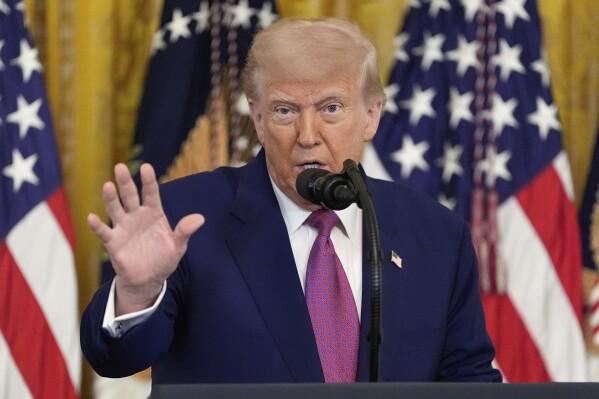Trump Declares U.S. Intelligence Knows Where Iran’s Supreme Leader Is Hiding
Former U.S. President Donald Trump made bold new statements regarding Iran during a recent public appearance, claiming that American intelligence has located Iran’s Supreme Leader, Ayatollah Ali Khamenei. The announcement, laced with aggressive rhetoric, marks another escalation in Trump’s hardline stance on Tehran.
What Trump Said About Iran’s Leadership
In his address, Trump alleged that the U.S. government knows the whereabouts of the reclusive Iranian Supreme Leader and suggested that Tehran should prepare for an “unconditional surrender.” These provocative comments have triggered strong global reactions, raising alarms about the potential for heightened tensions between the two nations.
“We know exactly where he is hiding,” Trump reportedly said, referring to Ayatollah Khamenei. “The Iranian regime will have no place to run if they continue on their current path. We demand their unconditional surrender.”
This assertive claim was not accompanied by any physical evidence or corroboration from U.S. intelligence agencies, but it follows a pattern of Trump using dramatic foreign policy declarations to rally his base and shift media narratives.
Potential Diplomatic Fallout
Trump’s remarks could have serious diplomatic consequences, especially as ongoing efforts at renegotiating the 2015 Iran nuclear deal—known formally as the Joint Comprehensive Plan of Action (JCPOA)—continue under the Biden administration. The former president’s tough language may complicate those negotiations.
International allies have urged caution in dealing with Iran, emphasizing diplomacy and economic pressure rather than military threats. Trump’s outspoken pressure contradicts this strategy, suggesting instead a confrontational path with one of the Middle East’s most influential powers.
Iran’s Possible Response
Although Iran has not officially responded to Trump’s claims, political analysts suggest that such rhetoric is likely to be met with heightened defensive posturing from Tehran. The country has historically bristled at foreign interference and threats to its sovereignty, particularly those directed at top leadership figures such as the Supreme Leader.
Experts believe Iran may ramp up its anti-U.S. messaging or accelerate its regional alliances in response. There’s also concern that Iranian military proxies in Iraq, Syria, and Lebanon could be activated to send a retaliatory message.
Reactions from Political and Military Figures
Reactions within the United States have been mixed. Some Republican figures praised Trump’s forceful approach, citing Iran’s continued support for extremist proxies and regional instability. Meanwhile, Democratic leaders have warned that such statements may undermine delicate diplomatic efforts and lead to unnecessary confrontation.
- Sen. Lindsey Graham expressed support, saying, “The only language Iran understands is strength. Trump understands that.”
- Rep. Ilhan Omar criticized the remarks, calling them “reckless and inflammatory.”
Military analysts have also expressed caution. General (Ret.) Mark Kimmitt told news outlets, “While intelligence assets may indeed track high-level targets, this kind of rhetoric compromises operational secrecy and could provoke unintended consequences.”
Impact on Global and Regional Stability
Trump’s assertion comes at a time of rising tensions in the Persian Gulf, with increased military presence from both U.S. and Iranian forces in the Strait of Hormuz. The White House has not commented on Trump’s declarations, possibly to avoid complicating current foreign policy dynamics with Iran and its allies.
Israel and Saudi Arabia—two countries historically opposed to Iranian regional ambitions—may feel emboldened by Trump’s statements. Conversely, nations like Germany and France have urged restraint, encouraging all parties to pursue peace through multilateral discussions.
Looking Ahead: Implications for U.S.-Iran Relations
As Trump continues to influence the Republican Party and positions himself for a potential 2024 presidential run, his foreign policy assertions could shape the next phase of U.S.-Iran relations. While his statement might appeal to hawkish voters domestically, international observers worry about the long-term ramifications of such aggressive posturing.
Should tensions escalate, there may be renewed impacts on global oil supplies and further destabilization in Iraq, Lebanon, and Syria—regions where Iranian influence is significant. This could also lead to new waves of asylum seekers and economic turmoil, especially in neighboring countries.
Whether or not the current administration chooses to address Trump’s claims openly remains to be seen, but the political and diplomatic stakes are unquestionably high.
Conclusion: Heightened Tensions or Political Posturing?
Though it remains unclear whether Trump’s comments reflect current U.S. intelligence strategy or are primarily political in nature, the international response underscores the gravity of such claims. As global powers weigh the seriousness of Trump’s alleged knowledge about Khamenei’s location, questions about security, diplomacy, and war loom large once again in Washington’s Middle East policy debate.

